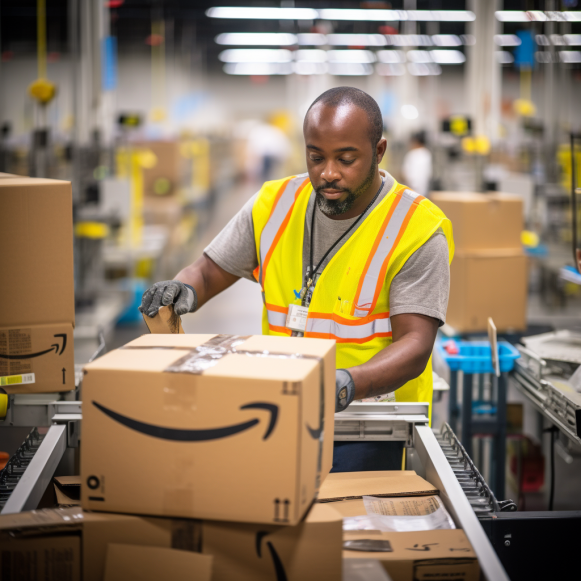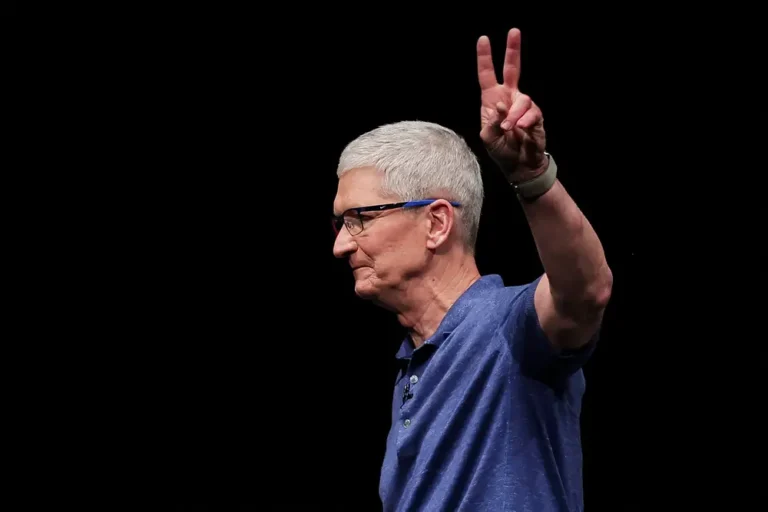Amazon is blocking promotions of employees who don’t comply with its return-to-office policy, leaked documents show

- Amazon employees who refuse to comply with its return-to-office policy may lose their promotions.
- Those failing to meet office attendance requirements will need a VP’s approval to get the proposed promotion.
- Amazon managers can now terminate employees who continue to refuse to come into the office at least 3 times a week.
Amazon recently added a new requirement to its promotions policy: You must be present in the office at least three times per week.
Last month, Amazon informed managers that employees slated for promotions must follow the company’s return-to-office policy, which requires them to be in the office at least three times per week. Otherwise, their promotions will be blocked, according to an internal announcement, email, and Slack messages obtained by Insider.
“Managers own the promotion process, which means it is their responsibility to support your growth through regular conversations and stretch assignments, and to complete all required inputs for a promotion,” according to the promotion announcement. “If your role is expected to work from the office 3+ days a week and you are not in compliance, your manager will be made aware and VP approval will be required.”
Amazon blocked an employee’s proposed promotion in a separate email and Slack message sent to a manager about an individual employee’s attendance record, which Insider obtained, because the employee failed to meet the office attendance requirements.
“If you do not plan to promote the builder, ‘Reject’ the Approval and update the builder’s Proposed Promotion Quarter (PPQ),” the email said in a separate message. The term “builder” is used by Amazon to refer to engineering employees, a reference to Jeff Bezos’ philosophy that builders are the people who put dreamers’ ideas into action.
Amazon’s spokesperson told Insider that compliance with the company’s return-to-office policy is one of many factors considered before an employee is promoted.
“One of the many ways we support employees’ growth and development is through promotions, and there are a number of factors we consider when determining an employee’s readiness for the next level.” “Like any other company, we expect employees who are being considered for promotion to follow company guidelines and policies,” said the spokesperson.
This is the most recent change to Amazon’s notoriously contentious return-to-office procedure.
As previously reported by Insider, Amazon informed managers last month that they now have the authority to fire employees who refuse to comply with the return-to-work policy. Those who are being considered for a promotion are instructed to first speak with their managers about their noncompliance. Managers can terminate an employee if they continue to fail to meet their office attendance requirements after the promotion has been blocked.
Amazon employees have been unsuccessfully protesting the RTO mandate since it was announced in February. Beginning in May, corporate employees were required to come into the office at least three times per week.
More than 30,000 employees signed an internal petition in opposition, and many more walked out earlier this year. Employees have argued that they were hired as fully remote workers during the pandemic and that the mandate is a departure from previous guidelines that allowed individual managers to determine how their teams worked.
In July, the company increased its efforts by instructing remote employees to relocate to office “hubs” where the majority of their team members were located. Those who refused to relocate or find another team that met their requirements were offered a “voluntary resignation” package. Amazon began sharing individual attendance records on employees in September, a departure from the previous policy of tracking only anonymized data. Then Amazon told managers they could fire employees who didn’t comply.
The updated promotion guidelines also highlight two key aspects of Amazon’s promotion philosophy. They are as follows:
- An employee’s role must be capable of being performed at the next level. This is often referred to as the scope of the role. A promotion cannot occur in a role that cannot grow with the employee (i.e., the role does not exist at the next level).
- An employee must consistently deliver next-level results. This is to position the employee for success at the next level because they have already demonstrated their ability to do the work.
“Like most processes at Amazon, the promotion process is peculiar, and the journey to promotion is unique to each employee,” according to the memo.






